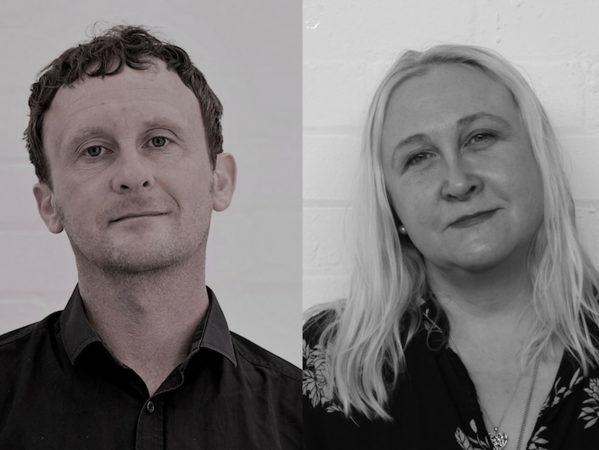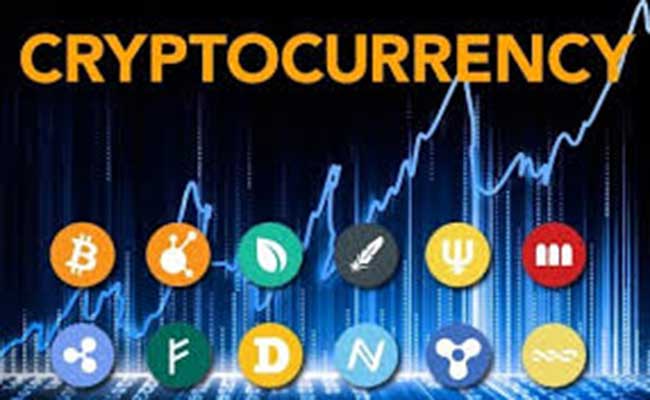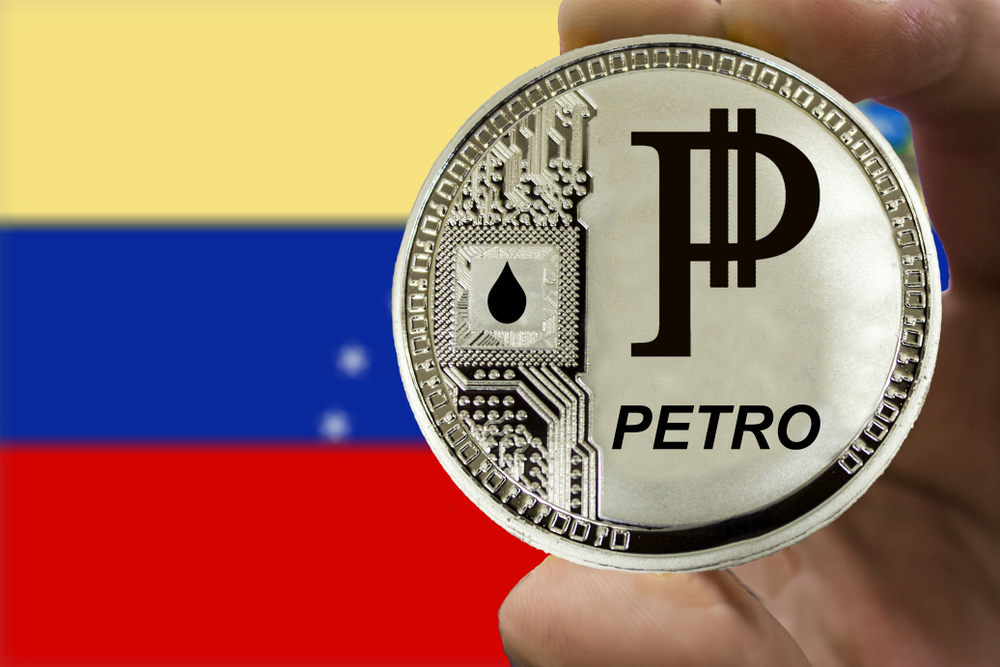
The staff at the nonprofit organization HullCoin has done something very unusual in the city of Hull in northeast United Kingdom. They’ve launched their own local cryptocurrency — programmed on top of Bitcoin to be issued by nonprofits and social institutions — as a way of combating financial exclusion and other problems that are at the root of poverty. Residents of Hull can earn HullCoins, which can be used at various places around the city. It’s an innovative model. But how exactly does it work? To learn more about the group’s approach, we spoke with the two founding members of HullCoin, Dave Shepherdson and Lisa Bovill. Here’s what we learned.
Aaron Fernando: It seems like both of you have had significant experience in civil service before this the start of this project. Can you talk a little about that, and if that influenced you to start HullCoin?
Lisa Bovill: I worked for the local authority for 20 years. I delivered and managed advice services — so that’s civil rights advice. I was also in charge for developing anti-poverty strategies for the city and as part of that, strategies to combat financial exclusion. So working with those who couldn’t get access to mainstream financial products and were penalized as a result.
At the same time, most local authorities across the U.K. were experiencing funding problems themselves — reductions in the amount they got from central government — which meant that they could do less to help people to manage their finances and less to combat poverty.
That was really where this whole thing started, and we were looking for creative solutions. We looked at technology and emerging technologies as having potential to help us with that.
I notice many similarities between HullCoin and things like time banks and loyalty reward programs. Could you talk a little bit about the things that influenced you, and what types of programs were you looking at when you developed the concept for HullCoin?
Bovill: We do have a local time bank, and we work closely with the time bank. It’s similar in that we are looking at non-monetary value systems. But we are different in lots of ways: It’s not just an hour for an hour. We are looking for a reward system that isn’t based on time, it’s based on social outcomes. HullCoin has a value, in terms of being able to redeem it for goods or services in a way that a time credit doesn’t have. What we want to do is interact with the time bank in a way that allows us to exchange those non-monetary value systems with each other and to create something like a varied secondary economy.
Shepherdson: When we were looking at mutual credit systems and local currencies — there are a lot of local currencies in the U.K. — the predominant ones are the Bristol Pound and the Brixton Pound — what we saw was that there were mutual credit systems (such as time banks) which are user-to-user exchanges, but local currencies were all effectively pegged to fiat currency. Like Lisa said, we were looking around the anti-poverty strategy in the city and we wanted something that would be generated into existence through social outcomes.
We looked at Bitcoin and blockchain technology as a decentralized clearing house which gave us regulatory freedom. It was 2014 when we started looking at this. In the U.K. certainly, a lot of what was going on with Bitcoin and blockchain was still cottage industry. I mean, kids were still mining cryptocurrency in their bedrooms.
How does an individual HullCoin unit get issued? Is it backed by anything?
Bovill: We will work with a number of grassroots and local organizations that will be given an amount of the currency and then they will be allowed to set their own rules around how they issue it. With some guidelines — quite broad guidelines from us — so it will really be up to those people. We’re not planning to regulate this or be really hands-on in terms of about how you issue or what you issue for. It’s up to those organizations who work with the city to make those decisions.
Shepherdson: And it’s not backed by any commodity. It’s backed by the community itself.
When one organization issues HullCoin, will it be the same type of HullCoin as when another organization does? And those can basically cross paths?
Shepherdson: Yeah, absolutely. The only thing that will differentiate between different HullCoins is that into each HullCoin, we insert software which documents evidence of positive social outcomes generated by the coin into the coin itself. An issuing organization — whether that be a charity, a local authority, the NHS, the university, schools, prisons, everybody who signed up for it will be able to insert positive social outcomes and that stays within their own transaction histories.
The person who generates the coin who has done the positive social outcome — that can be for self-improvement or volunteering, or it could be mentoring, or could be caring for relatives — that positive story stays with them on their wallet, on their app. It sits on there and any business or retailer that accepts HullCoin as a form of discount also receives a time-stamped copy of that positive social outcome.
What you get collectively, then, is distributed ledger of all the positive social outcomes that have taken place — in this instance Hull is the city — but essentially, could be spread across numerous geographies or within any context, really.
That’s really interesting. That leads to one of my questions that deals with why you used cryptocurrencies. I was looking your tweets and I came across a question you asked that I wanted to pose back to you: “Why would you create a local currency using blockchain over traditional digital payment systems.”
Shepherdson: We did a full appraisal of all the different systems and which we could use, including blockchain. Because we’d developed links with Feathercoin, we were able to obtain the skills to develop the distributed ledger (blockchain) infrastructure very, very cheaply.
What I think mutual credit systems — and any currency systems — have trouble with, is that at scale they become incredibly inefficient and it becomes more expensive the more successful that that you are.
One the things with local currencies: with paper, the more that you issue, the more your running costs and maintenance costs stack up. While we obviously have server costs around the surrounding tech, the actual payment infrastructure is incredibly efficient. Not only that — it’s incredibly secure at the same time.
We’re a social technology company which specializes in distributed ledger technology. The application of HullCoin in this first instance… This is something that could be genuinely valuable and is complementary to the economy as a whole, but provides that platform for the adoption of the technology.
If we’re able to achieve successful public penetration of [blockchain] technology, then other applications potential the blockchain technology become extremely attractive. If you think of Bitcoin as being the world’s first-ever programmable money then it has become a no-brainer to use the model we’ve landed on — and the fact that we’ve been able to develop the infrastructure and everything at a fraction of the cost of what the industry rates are.
I’ve noticed that there’s often a disconnect between the local currency folk and the digital technology folk — not just crypto enthusiasts but with FinTech and mobile payments generally. Do you encounter this disconnect at all?
Bovill: I think the reason is that one is all about grassroots and people and the other is digital — and therefore automated and not people-centered. But we have come from a background of services that engage with people, so we want to see technology that’s put into the hands of communities in a way that they never thought that the technology would.
But also, I think that it’s difficult when you have a more traditional model that’s trying to achieve something, and then technology comes along and enables you to do it in a different way but you’ve already got an established model. So then you have to switch to a different model, and it’s difficult to accomplish that.
Shepherdson: Now, I don’t know the inner workings of a chip and pin machine. All I need is confidence. As long as I have confidence when I use my contactless payment, I get a reassurance.
So it’s all built upon confidence. What we’ve developed in the last 12 months — the UX on this— it actually resonates with all the communities that were working within Hull and beyond. If you look at what was developed, there’s no mention of blockchain technology. That does not sell to the public. We benefit from the infrastructure internally. All we’ve got to do is build confidence with it.
Once people have done something and they go back to their accounts on the system and see that they have been credited with a balance, they feel that they have been paid. It feels like money. That’s the psychology of money. So we replicate the psychology of money within the system; the technology in terms of blockchain and Bitcoin, from the user side of things is completely irrelevant.
How do you see a local currency scaling? And is it a relevant question for a local currency to scale?
Shepherdson: I think a local currency can scale. I think local communities should own their own currencies.
Bovill: It can be local, but use the same model.
Shepherdson: You can basically share the platform. The way that we’ve designed the whole current platform is that you can take the front and down you can share the back-end and you can have your own customizable set of coins which are specific to your geography or your interests.
It doesn’t just have to be around a local area. You could have one which is specific to a college, education, or health. It’s interoperable in a number of ways and you can white label the same platform and it’s extremely efficient and cheaper to do so rather than developing anything from scratch.
Is there anything unique about the city of Hull that lends itself to success of a program like this? And in the best case scenario what do you hope to achieve with HullCoin?
Bovill: I don’t think there’s anything so unique about the city of Hull apart from the fact that it is a Northern city and every time there’s economic downturn, it’s just battered because the primary economy gets battered. There’s a disproportionate effect on the local citizens.
We were trying to — in our strategies — to prevent that. We were trying to think about some way to create economic resilience for cities like Hull and Northern cities like Hull.
Shepherdson: 90 percent of all of the world’s croutons are made in Hull. [Laughter]
I suppose Hull’s always had a bit of a rebellious streak to some historical extent. I like to think in some ways we plug into that. It is mostly beaten down. But again, when there’s issues like the things that we were looking to address that’s where innovation sometimes comes from— necessity, really.
If we can provide a mechanism which gives people an opportunity to contribute to their economy and their community and also helps themselves and it gains traction — if that achieves success and credibility then our work here is done.
Bovill: In terms of ultimate aim, with the local currency, it is about trying to operate a key component in create a secondary economy. A secondary economy which matches unmet need with what would otherwise be wasted resources.
Shepherdson: And also, we have an interest and aspiration to linking with the universal basic income model of welfare. The current model of welfare that we have in the U.K. really is, I don’t think, fit for purpose. And it certainly isn’t fit for purpose in what I think we would determine is a post-automation economy.
You’re going to have to look at “what is value?” In a much broader economic sense then what is currently considered by Western governments. Hopefully what we’ve developed with HullCoin — both within its economic modeling and its blend of technology and application — is fit for purpose for the future model of welfare which reflects the changing economic activities people will be undertaking. You can have a corporate and a communal contribution to your economy, which is somewhat different from what it is now.
And you’re planning on doing an ICO (initial coin offering) as well?
Shepherdson: That’s aligned with our aspirations of creating a parallel currency. We’re working with the number of academics and some people within the blockchain sphere on putting together a draft whitepaper and we’re going to make an assessment whether that draft is fit for purpose, and then we’ll make an assessment whether or not we’ll do an initial token sale on a parallel currency.
The potential is certainly there and I think unlike what a lot of other blockchain crypto startups are doing, we’ve actually got an MVP (minimum viable product). We’ve got a track record, we’re close to market and if we get the economic modeling right we will be able to launch the cryptocurrency.
Header image of Dave Shepherdson and Lisa Bovill courtesy of HullCoin
Originally published in Shareable
Aaron Fernando is the Marketplace Coordinator for Ithacash, a local currency initiative in Ithaca, New York, and its marketplace app, Main St. Market. He is also a freelance writer focusing on local movements, new economy initiatives, and behavioral economics.













































